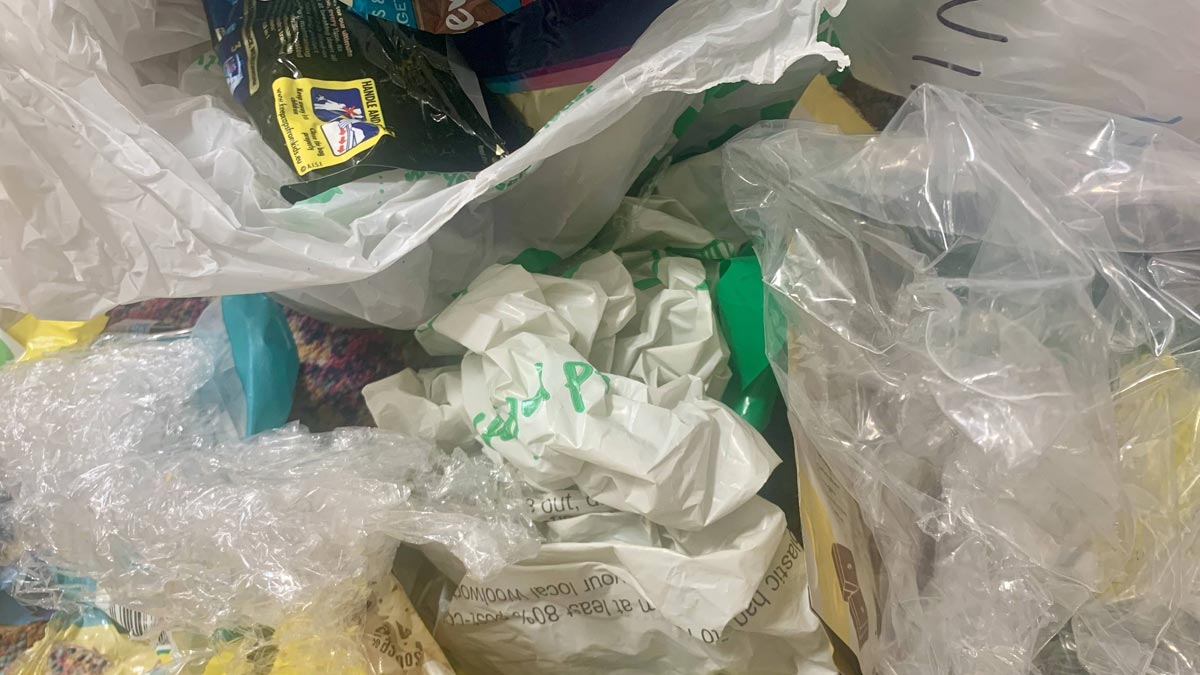How to recycle soft plastics in Australia

With the recent closure of Redcycle’s soft plastics recycling program, more and more people are looking for other ways to recycle soft plastics in Australia. In this blog post, we’ll explore some of the best ways to recycle soft plastics in Australia. We’ll also provide tips on reducing your use of these materials in the first place. Let’s get started!
What are soft plastics and why should we recycle them?
Soft plastics refer to plastic items that are flexible and often malleable. Soft plastics are pervasive in our society and commonly used in food packaging, cosmetics, synthetic fabrics and more.
Recycling soft plastics, as part of a broader Reduce, Reuse and Recycle strategy, helps save energy by using fewer resources. The reprocessed material is turned into reusable materials while reducing waste sent to landfill sites. Collecting these recycled materials diverts them from ending up in our oceans which helps minimise the contamination of waterways and animals. Recycling soft plastics should be encouraged to protect the environment and reduce the cost of disposing of waste from landfills.
Collapse of Redcycle
Redcycle was a recycling program that collected and recycled soft plastic packaging from supermarkets such as Coles and Woolworths, mainly in the form of plastic bags. Unfortunately, due to stockpiling of soft plastic items, the Redcycle has recently been suspended. This sudden halt to the service has left many Australians looking for alternate recycling options.
Cleanaway is currently considering a $500 million co-investment to help fill the gap left by RedCycle.
How to recycle soft plastics in Australia
Recycling soft plastics correctly is crucial in reducing our environmental footprint.
In Australia, soft plastics can be recycled by a scheme called Curby, which operates mainly out of the Central Coast, Willoughby, Mosman and Newcastle. If all goes well with the trial in these locations, the scheme will be deployed by the NSW Government to other Local Government Areas (LGAs).
Their website states, “By joining Curby, you can recycle materials that were once considered single-use.”
The Curby program works as follows:
- Once your bag is full of the material specific to your program, you’re ready to Curby it!
- When the bag is full, scan one of the QR codes on the bag or tag using the Curby app…
- And into your yellow-lid recycling bin it goes!
- As Curby partners with Councils, they tap into their existing bin collection service and your CurbyBag is collected as normal along with all your other recycling!
One thing to remember is that you cannot be soft plastics into your standard recycling bin at home as they won’t be suitable for processing.
The benefits of recycling soft plastics
Recycling soft plastics is a great way to reduce your household’s carbon footprint. By recycling, you can prevent plastics from ending up in landfills and the oceans, where they remain for hundreds of years and contribute to widespread pollution.
Ensuring that any old plastic items get recycled or appropriately reused enhances safety; objects like small toys and worn electrical wires can become dangerous when not handled correctly.
Every bottle or container counts, so if everyone makes a habit of recycling their soft plastics, we could make a real difference in reducing global waste.
Can cellophane go in soft plastics recycling?
No, most cellophane is made from Polypropylene and therefore isn’t suitable for recycling. It should not be placed in your home recycle bins.
Is Woolworths still taking soft plastics?
No, given the recent collapse of the REDcycle scheme, Woolworths is no longer collecting soft plastics for recycling.
Is Coles still recycling soft plastics?
No, given the recent collapse of the REDcycle scheme, Coles has stopped collecting soft plastics for recycling.
Does Aldi recycle soft plastics?
No, ALDI was subscribed to the same REDcycle recycling scheme as Coles and Woolworths, meaning, it is no longer accepting soft plastics for recycling.
Tips for reducing your use of soft plastics
Soft plastics make up much of the plastic pollution found in our oceans and landfills. However, reducing our use of soft plastics is a relatively easy way to help reduce this growing environmental concern.
Among the best tips for reducing your use of soft plastics are switching to reusable grocery bags, refusing straws and other single-use items when dining out, bringing your own coffee cup or water bottle with you whenever possible, and investing in durable storage containers for food and leftovers.
Additionally, most plastic containers that seem impossible to recycle can actually be recycled at special facilities if you sort them correctly! By following these tips, making small daily changes can result in significant reductions in carbon emissions and a healthier planet for everyone.
Recycling soft plastics is one way we can help reduce the amount of waste that ends up in landfill. It’s not always easy to do, but it’s worth it for the environment.


